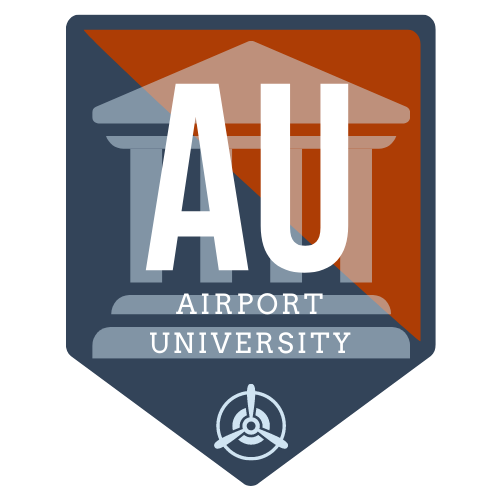Leases are contracts between parties to provide access to land, property, or a service from one party to another for a specified time period and rate. Airports have many types of leases ranging from a simple Tee Hangar up to multimillion dollar agreements for terminal space. There are different concepts to how an airport sponsor can manage the airport lease agreements.
Some airports have in house teams that handle all property management, including advertising, requests for proposals, contract negotiations, and executing contracts. On the converse, other airports may allow a third party company to oversee property or concession management. Still others may choose a hybrid model.
Regardless of the model used or lease type, the airport sponsor has a duty to maintain their rights and powers. Several Grant Assurances are tied to leases.
- Grant Assurance 5, Preserving Rights and Powers, specifically requires airport sponsors to maintain the right to perform all requirements of a grant assurance.
- Grant Assurance 23, Exclusive Rights, sponsors cannot grant rights exclusively to any single enterprise for aeronautical activities.
- Grant Assurance 24, Fee and Rental Structure, sponsor sets rates, charges, and rents in a manner that ensures self-sustainability of the airport.
- Grant Assurance 39, Competitive Access, requires reporting to the FAA if a medium or large hub airport cannot accommodate new or expanded service by an air carrier.
Types of Leases
Within aviation, there are four common lease types, straight, graduated, revaluation, and percentage.
Straight
Straight leases are typically a gross lease, where the rate remains the same from month to month. The predetermined amount is valid for the terms of the contract and do not change. It is possible for a straight lease to be determined on net. That is the base lease is the same month to month, but additional charges such as utilities and insurance are added onto the lease amount for an all in one solution.
Graduated
A graduated lease is an agreement between the landlord and tenant that has built in periodic adjustments of the payments. The agreement will call out how the adjustments will work, how often, and if anything will trigger the adjustment, such as an increase in the Consumer Price Index (CPI). Typically the landlord benefits the most over the long term.
If the landlord has all the benefits, why would anyone else want to sign on. Well, there are benefits to the lessee as well. Since values start out lower, the monthly rent is often cheaper as a result of the built in adjustments. This can offer a short term benefit through discounted rates. With graduated leases, the terms typically are longer than a traditional straight lease.
Typical triggers for an adjustment:
- A rate escalator that is triggered by a rise in the Consumer Price Index (CPI) for example.
- An appraisal which allows for property values to be reevaluated on an agreed upon basis.
Revaluation
A lease based on revaluation is a variant of a graduated lease, however the rent is based solely on the property value rather than other index such as CPI. The caveat to a revaluation lease is that the value can decrease and lead to lower rents as a result.
Percentage
With a percentage lease, the lessee may pay a set amount for monthly rent along with a percentage of gross sales. In the airport industry, these are common for retail operations and sometimes FBOs. The benefit to this is the airport and retailer both “profit” on the sales. The airport as the landlord needs retailers to provide for customers needs, while the retailer needs access to the passengers that the airport can provide.
Commercial Lease Agreements
Common Lease Agreements
- Recitals
- Grant of Lease
- Lease Term
- Rates, Fees, Charges
- Taxes
- Security Deposit
- Improvements
- Obligations for Repair, Maintenance, and Upkeep
- Covenants by Tenant/Lessee
- Indemnity
- Insurance
- Signage and Use of Property by Lessee
- Subletting
- Damage to Premises
- Condemnation, Default, or Expiration of Lease/Agreement
- Title
- Signature Block



3 thoughts on “Airport Lease Agreements”